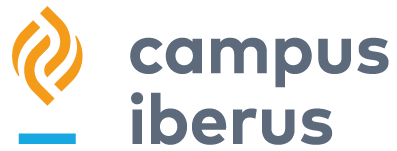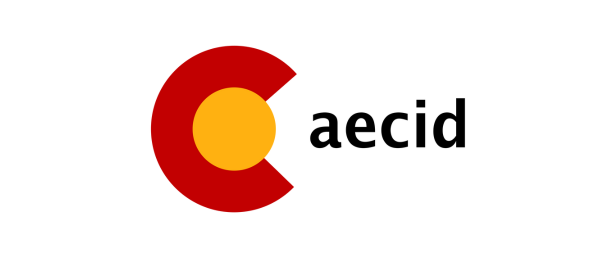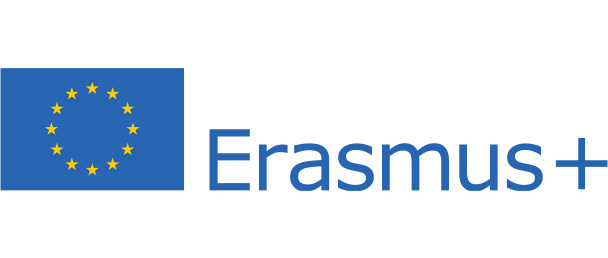As an implementation of the shared values of the Campus Iberus universities, in collaboration with local institutions, volunteer and cooperation projects are actively developed in Colombia.
Before opening the Bogotá office, the consortium participated in the project “International Diploma in Entrepreneurship, Innovation and Project Management”,derived from a cooperation agreement between Campus Iberus and the OEI, training more than 8,000 people linked to the rural and urban agricultural and livestock sector throughout the country,including the entire family group, as well as community leaders, associations, public servants and community boards.
The purpose of this project was to join forces to develop training and education processes through classroom-based, theoretical and practical courses in Colombian municipalities to create knowledge, improve associativity, entrepreneurship, strengthen productive efficiency and competitive, technical and results capacity in families, groups, organisations and associations in the agricultural and fisheries sector and, at the same time, contribute to the reduction of rural poverty and improve the income and quality of life of the population.
In collaboration with the Spanish Agency for International Development Cooperation (AECID), Campus Iberus has carried out two projects aimed at promoting sustainable rural development:
COOPERATION PROJECTS
Holistic Rural Reform for Women's Empowerment
Aiming to strengthen the role of women in post-conflict rural restructuring and improve the efficiency of food production and marketing chains.
In a second phase aimed at a community of people displaced by the armed conflict in Colombia, solar energy was installed for the extraction of well water for irrigation and a solar fruit dehydration plant was built.
As a complement, a 100-hour diploma course entitled “Innovation and development of new agro-industrial products” was developed in agreement with the universities of Ibagué and Tolima. Comprehensive rural reform is one of the commitments made by the state with the signing of the Peace Accord during the Santos administration.
Resilience to Climate Change in the Andean Region
This project focused on resilience to climate change in the Andean (central-western) region of Colombia, where challenges related to water scarcity and irregular rainfall are faced.
The objectives of this project were:
- Knowledge generation: water balances of the crops indicated in the areas of interest:
- Selection of reference farms and installation of equipment: passive suction lysimeters and weather station.
- Data acquisition and modelling.
- Calculation of water needs and timing throughout the cycle.
- Calculation of local water storage needs.
- Implementation of simple, functional and affordable demonstration irrigation installations.
- Development of a basic guide to installation and use.
- Evaluation of the increase in productivity compared to the sectors without the application of localised irrigation.
- Knowledge transfer. Conducting workshops and courses:
- Farmer training and visits to the model facility.
- Training of technicians and staff of the administrations.
- Launching of a project website with the information and materials generated, accessible to the public.
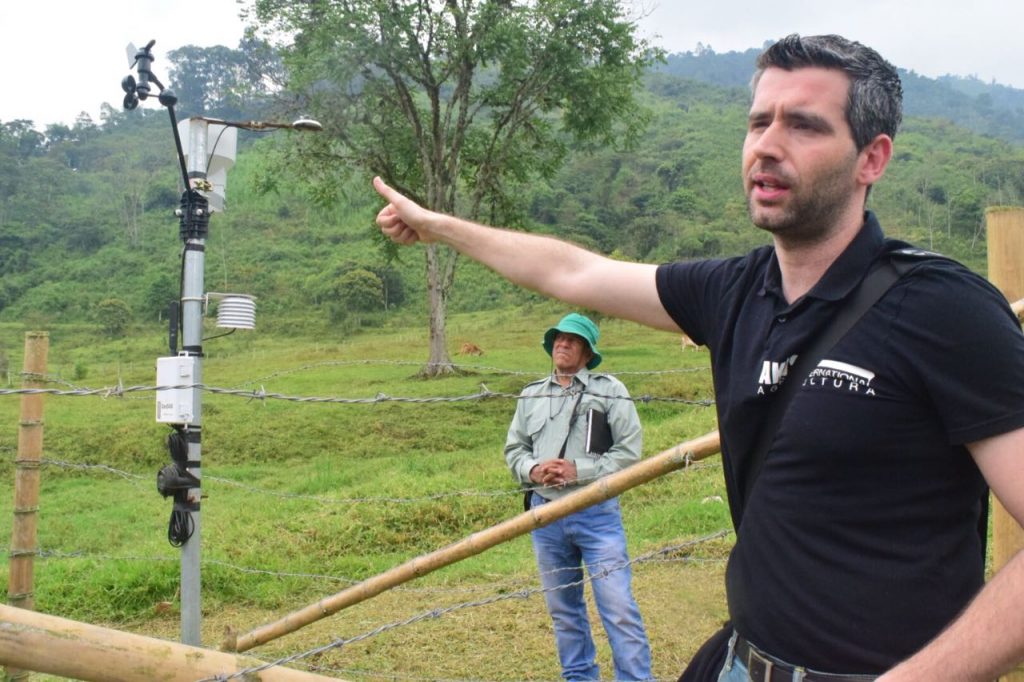
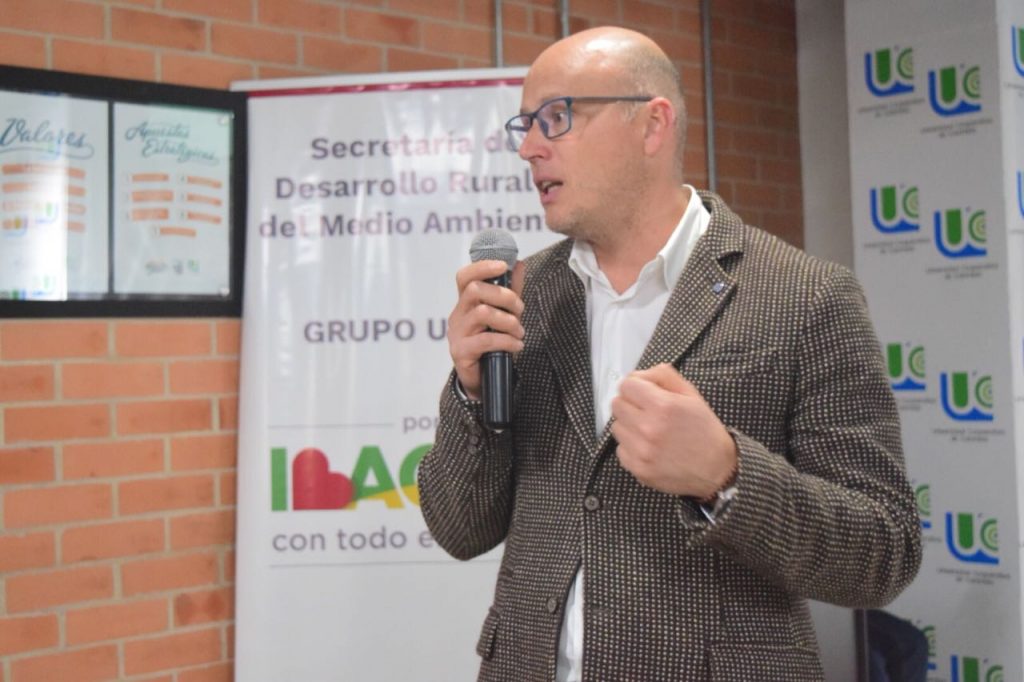
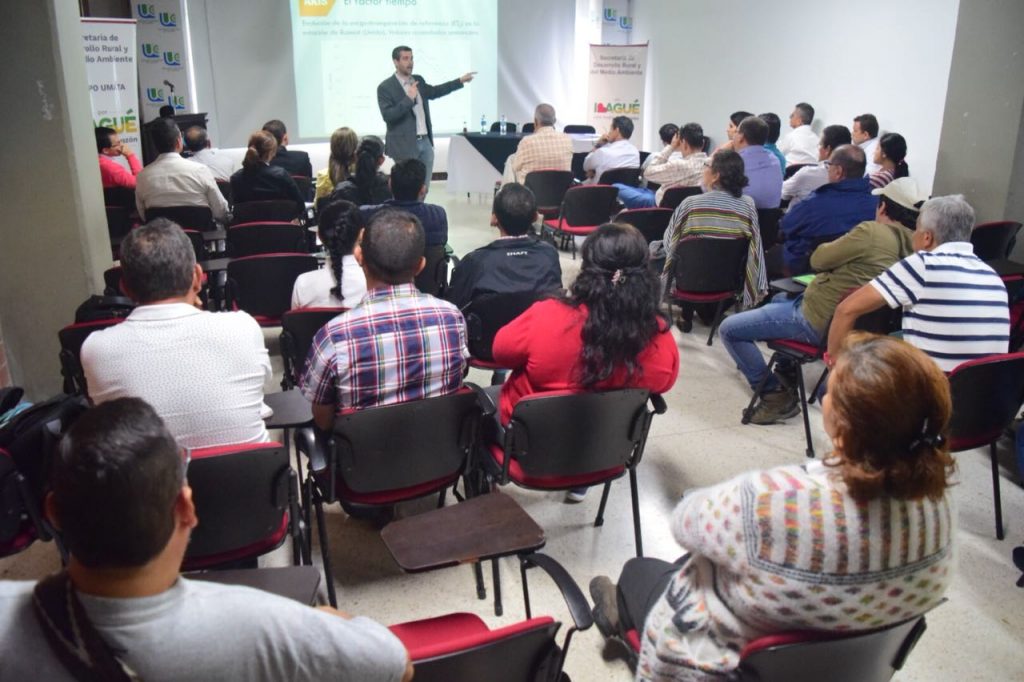
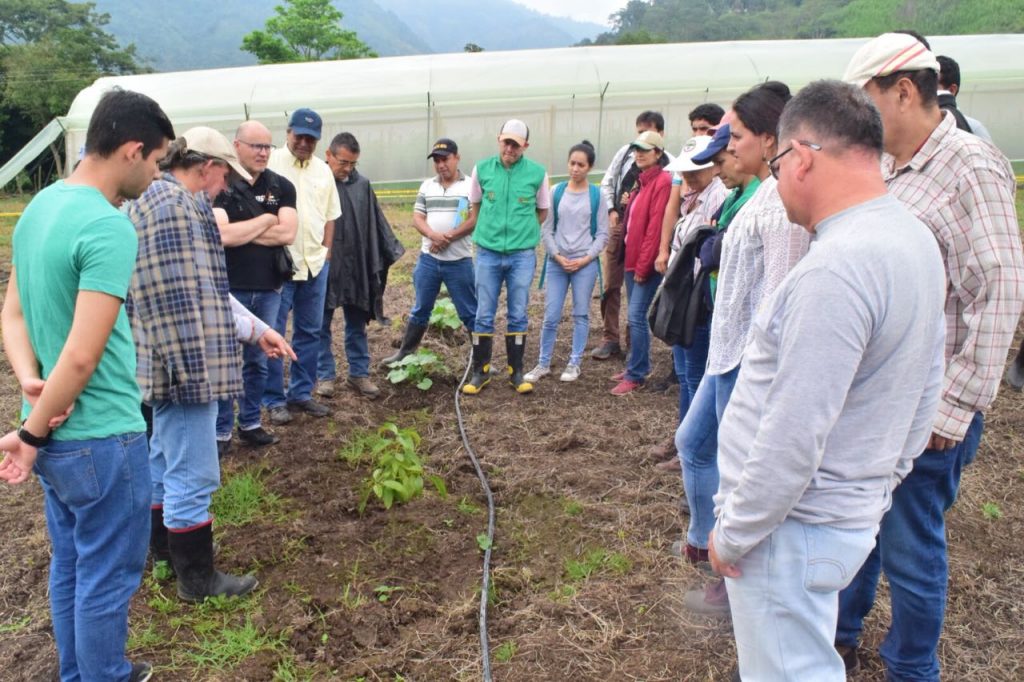
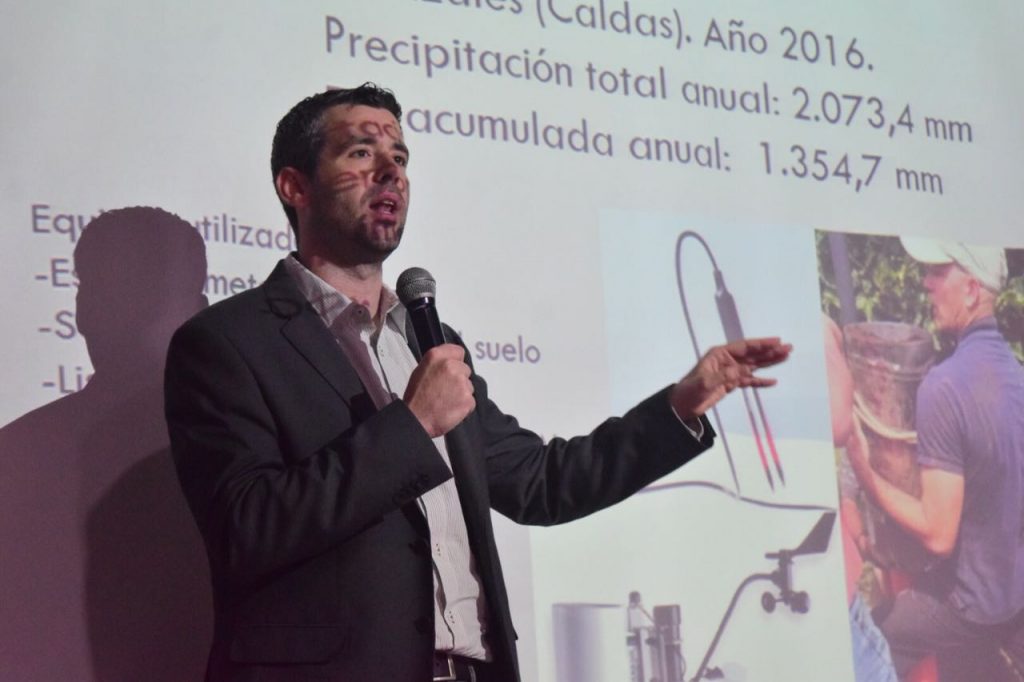
SCENTS OF PEACE
International cooperation project on sustainable development with a gender and post-conflict approach.
The “Aromas de paz” project is contextualised in the Colombian post-conflict context and in a rural area of the country where, despite the time, the Peace Accords have not been permanent. This project has sought to contribute to sustainable development in the south of Tolima, particularly in the municipality of Chaparral, based on three fundamental axes: sustainable development, empowerment of women victims of the armed conflict and reconstruction of the social fabric. The beneficiary population has been articulated through the Chaparraluna Women’s Network for Peace (Red de Mujeres Chaparralunas por la paz).
MEMORY IN OUR HANDS
The testimonies that appear in this documentary form part of one of the objectives of the international development cooperation project “With our own hands. Memories of women in the process of reincorporation in Colombia”, financed by the Development and Cooperation Unit of the University of Lleida DEC-UdL, directed and executed by the Principal Researcher, Dr. Déborah Presta Novello. This objective consisted of systematising the experience of women ex-combatants before, during and after their involvement with the FARC-EP, as part of the contribution to peace-building and national reconciliation. Seven years after the signing of the Final Peace Agreement, stigmatisation and political violence against the ex-combatant population remains latent. This has a particular impact on women in the reincorporation process, who survive violence as a result of having been part of an armed organisation, as well as political violence due to their gender. Despite this, women in the reincorporation process are a key social subject in the implementation of the Peace Agreement, in the creation of strategies for the non-return to war and for the pedagogy of peace from the reflection on their situated experience, the individual and collective account of their lives before and after their time in the guerrilla. The project was carried out in three regions of the country (West, Centre and East), and has revolved around three axes: reincorporation with a gender focus, memory and peace pedagogy, as fundamental elements for overcoming the causes of the armed conflict in Colombia and national reconciliation.
Territorial fabrics with a female face in the department of Tolima (Colombia)
The project aims to have a positive impact on the female population in the municipalities of southern Tolima (Herrera, Planadas and Chaparral), which are already organised in collaborative work associations. It consisted of providing the women with training in sustainable social entrepreneurship, as well as leadership and women’s empowerment issues; it also consisted of accompanying the associations in the support of branding work with a budget earmarked to boost their various ventures. The aim is to contribute to the growth of the territory through collective social innovation processes in these communities.
This project consisted of the design, implementation and evaluation of a training action aimed at improving and making the enterprises of women’s associations sustainable: carried out in a mixed face-to-face and telematic modality with synchronous and diachronic sessions. In this sense, the contents of the course have taken into account the training needs of the participating women and the development of their competences to strengthen their entrepreneurial initiatives in the following topics:
The training programme consisted of 7 modules (Module I. Women and Society, Module II. Motivation and Female Leadership, Module III. Labour Welfare and Collective Innovation, Module IV. Business Fundamentals, Module V. Development of a Sustainable Business Plan, Module VI. Project Management and Module VII. Marketing Tools. In addition to practical content (offline, tutored group work, diachronic field work).
This project was developed with the collaborative work of three associations of women entrepreneurs, whose work in the development of their communities has been important for the fulfilment of the main objective proposed here in the impact on the socio-economic growth of these municipalities.
Youth innovation and entrepreneurship co-laboratories for sustainable development: a strategy to strengthen gender equity and the creativity and agency capacities of young coffee farmers in the department of Tolima (Colombia).
The aim of this project is to promote the appropriation of tools that will enable young people to recognise their own power to overcome the social, economic and business barriers that they may encounter in their personal and, above all, professional future.
The aim is to guide young people in the rural area of the department of Tolima towards collective innovation through social entrepreneurship in close connection with the territory. Doing so contributes to the sustainable development of rural communities that are transformed in harmony with nature and with the coffee culture, which is of great importance for the identity of the area and the country.
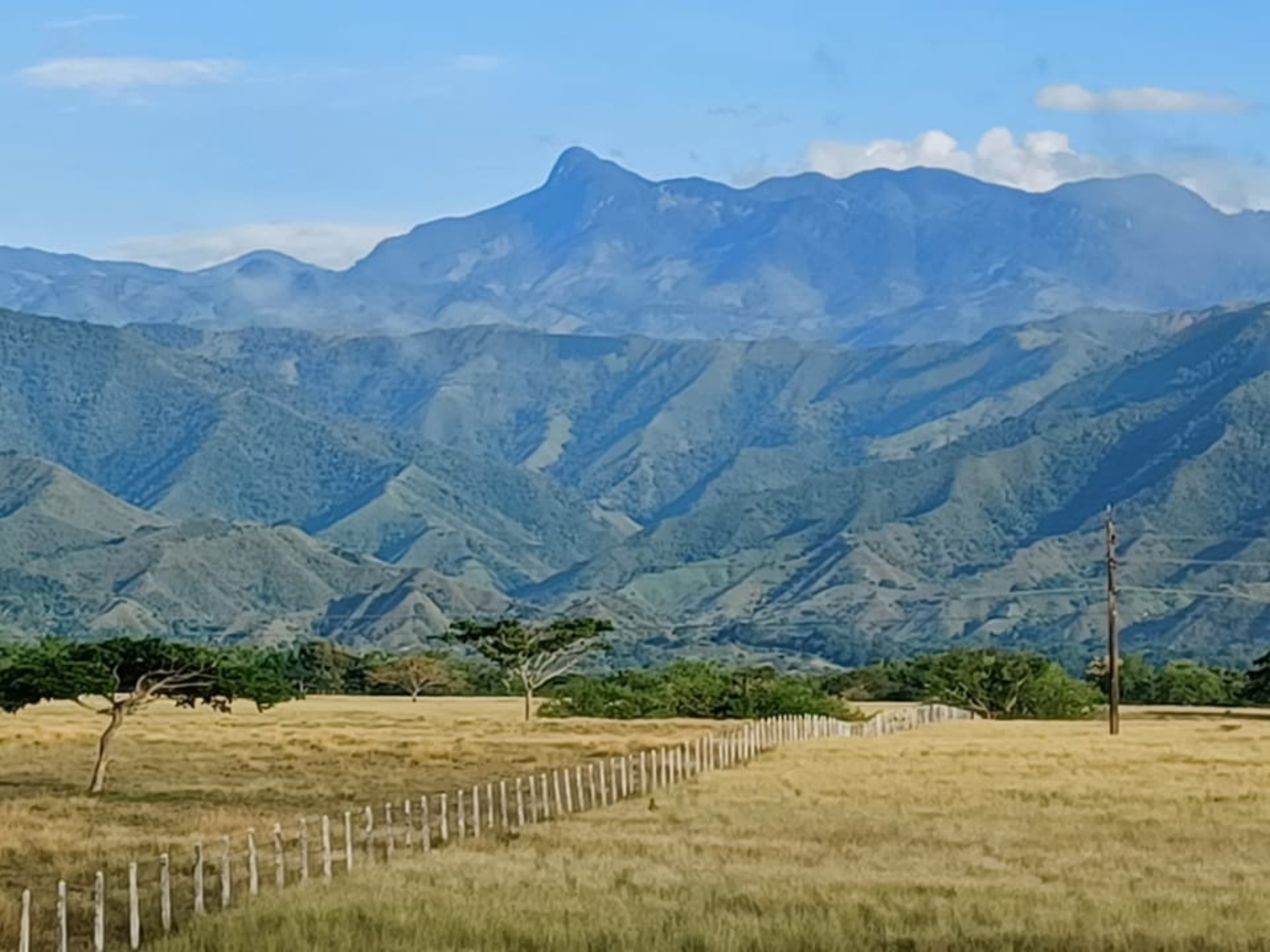
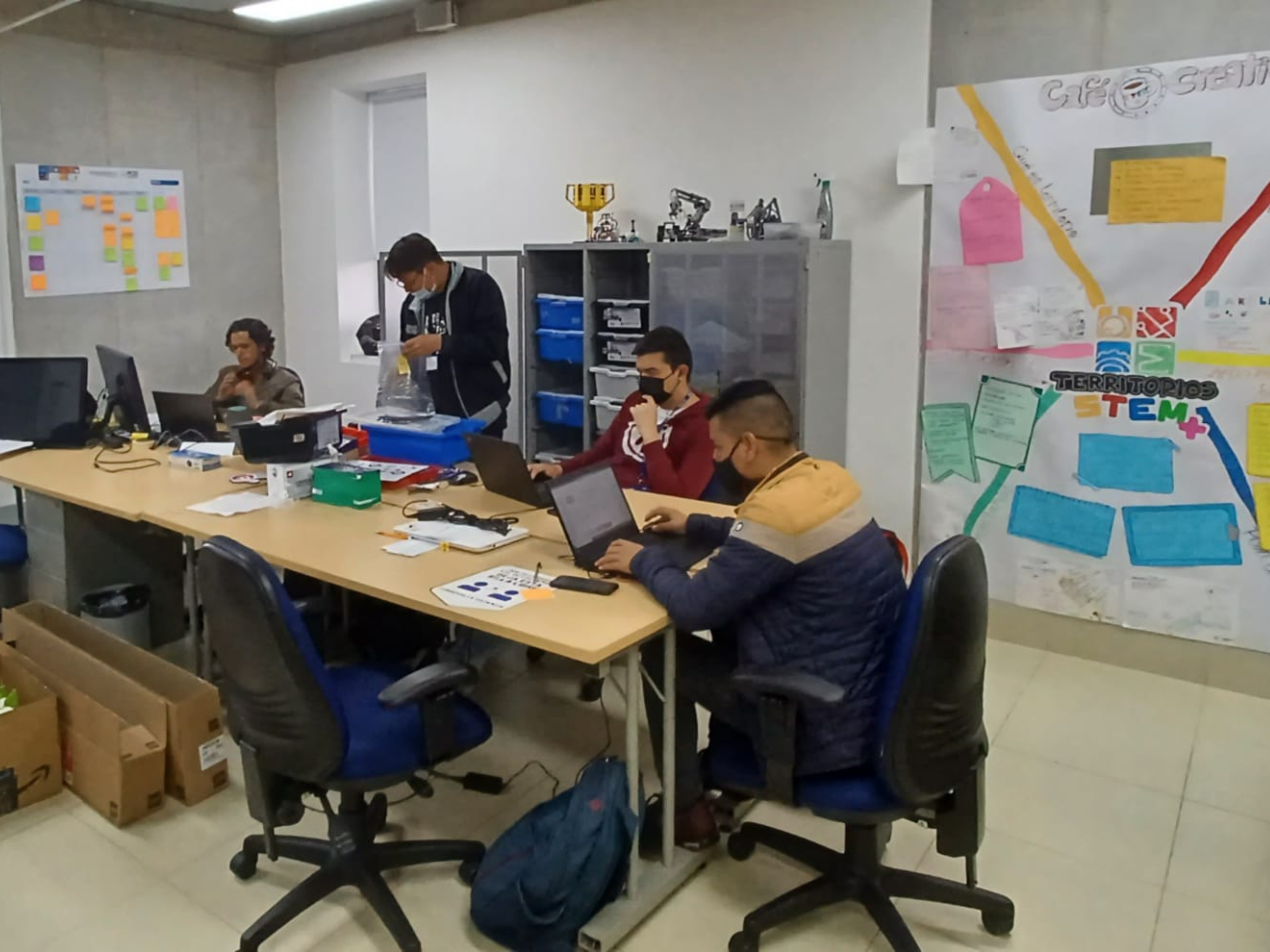
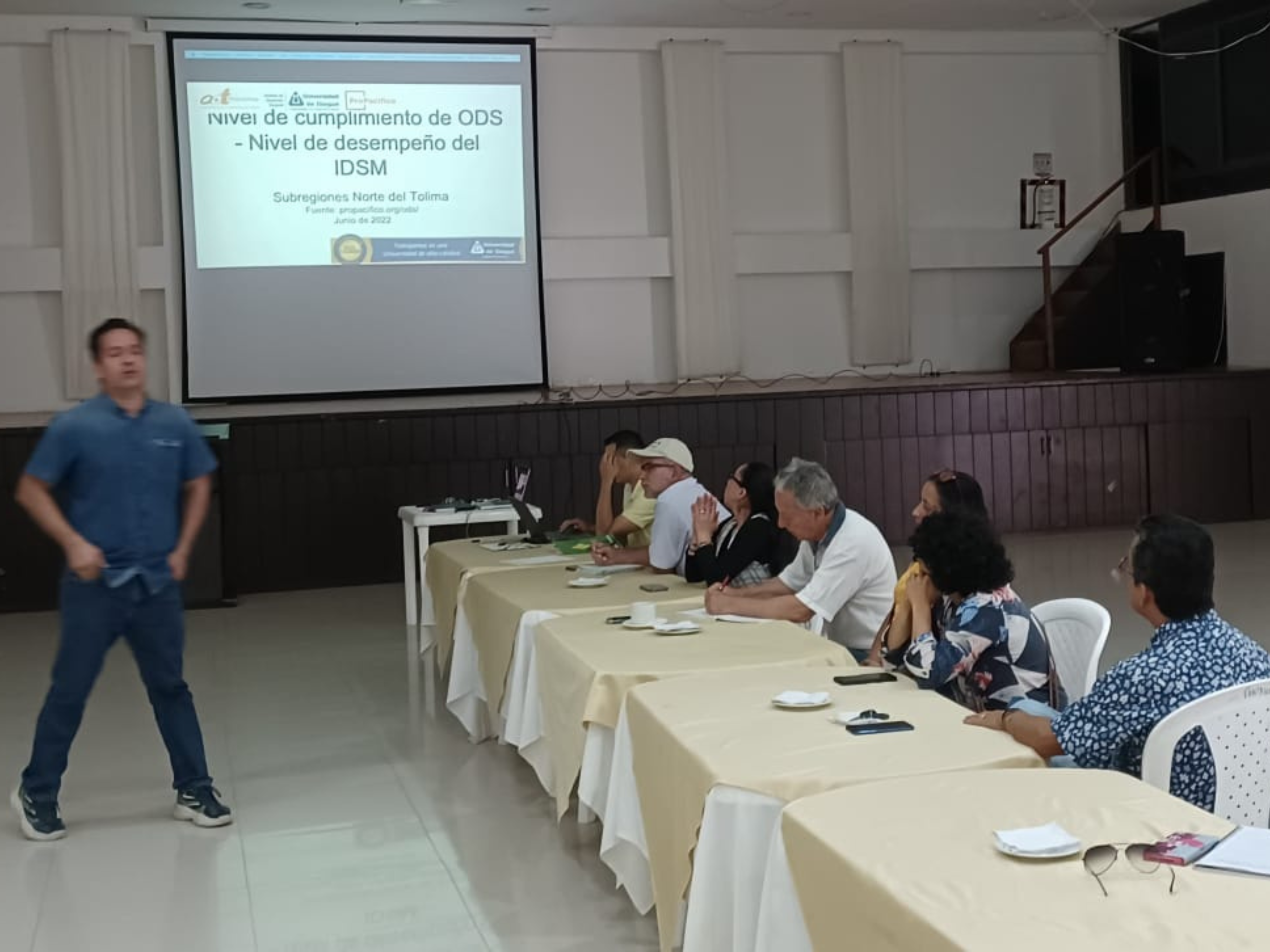
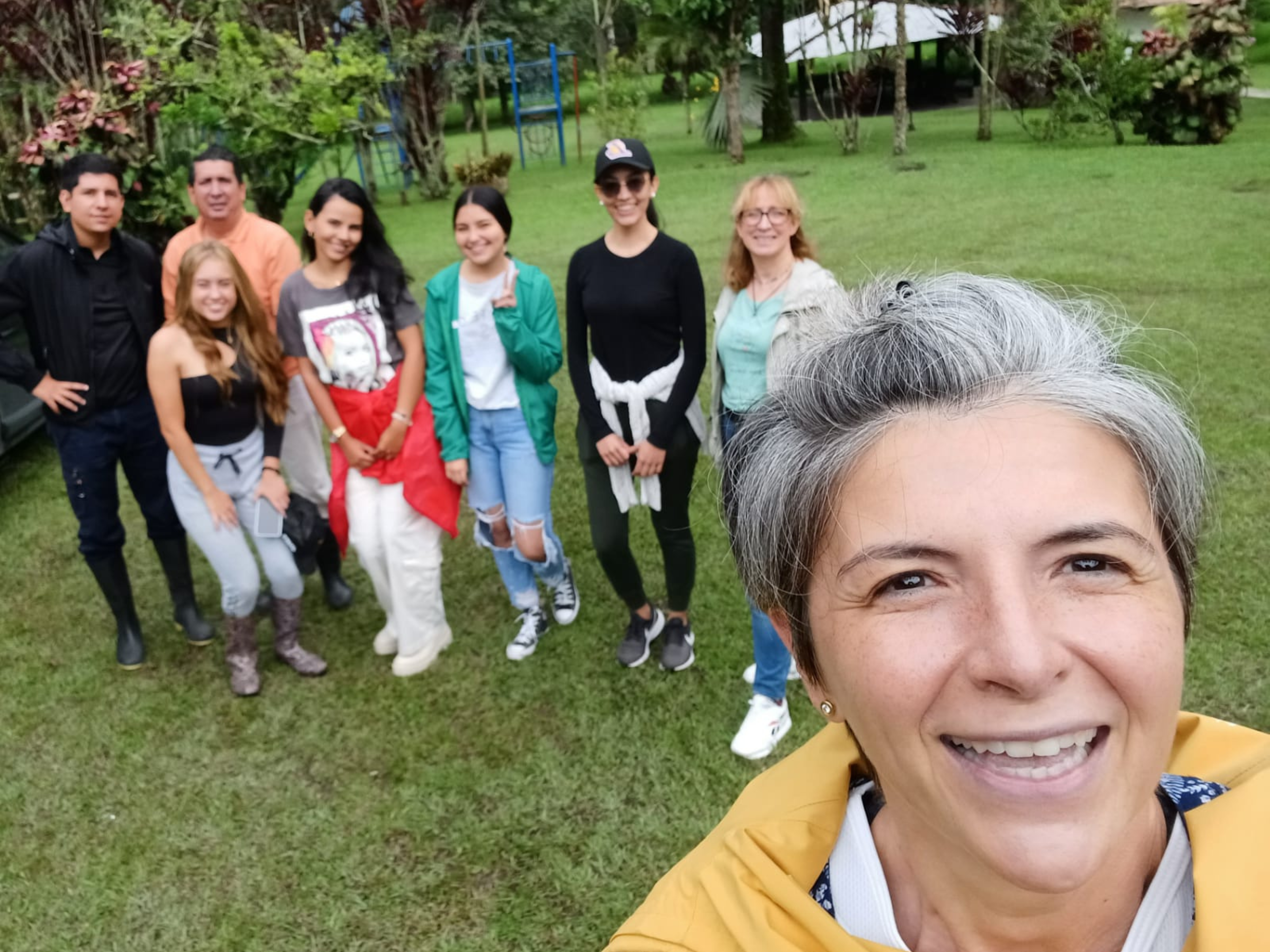
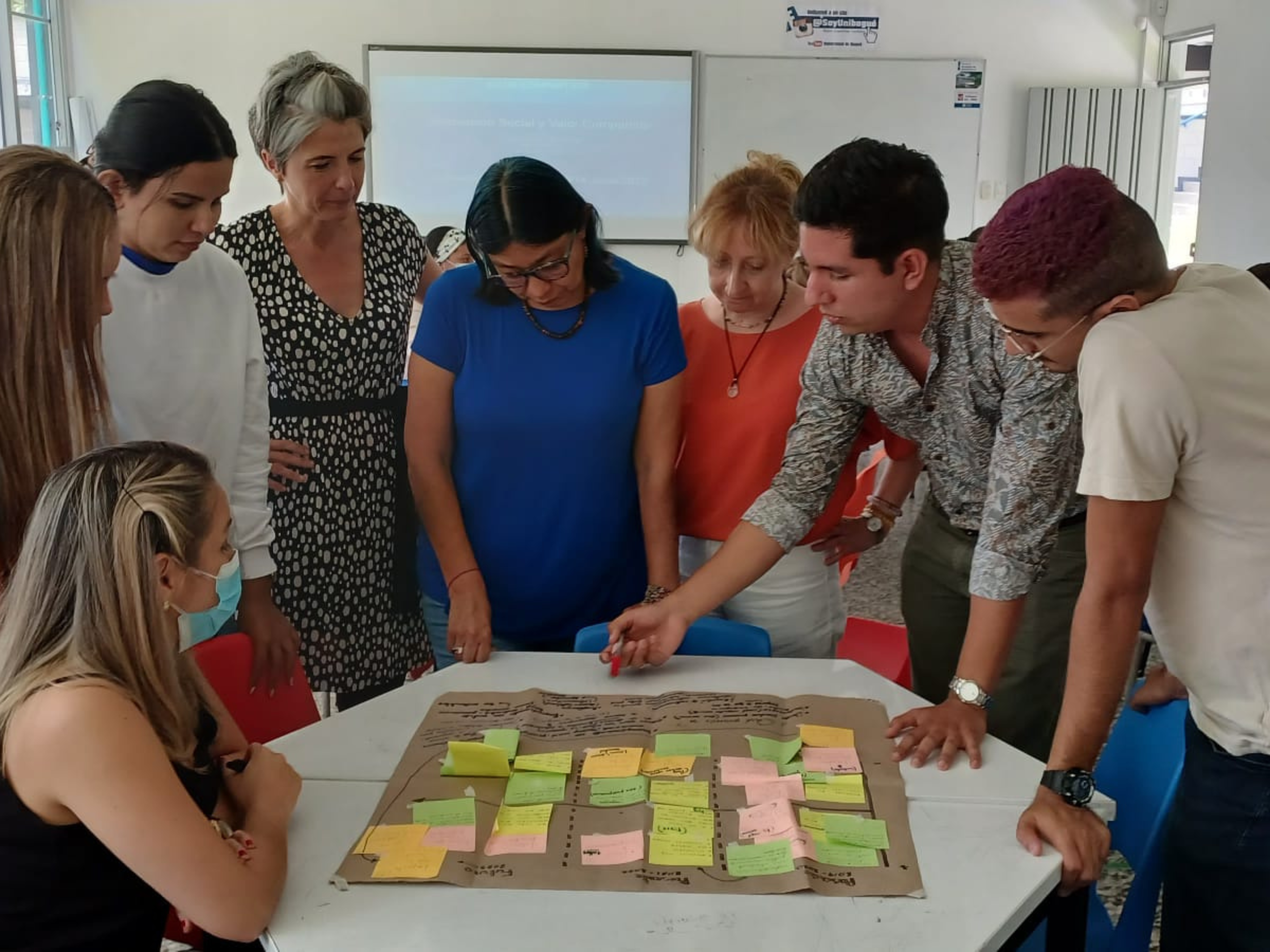
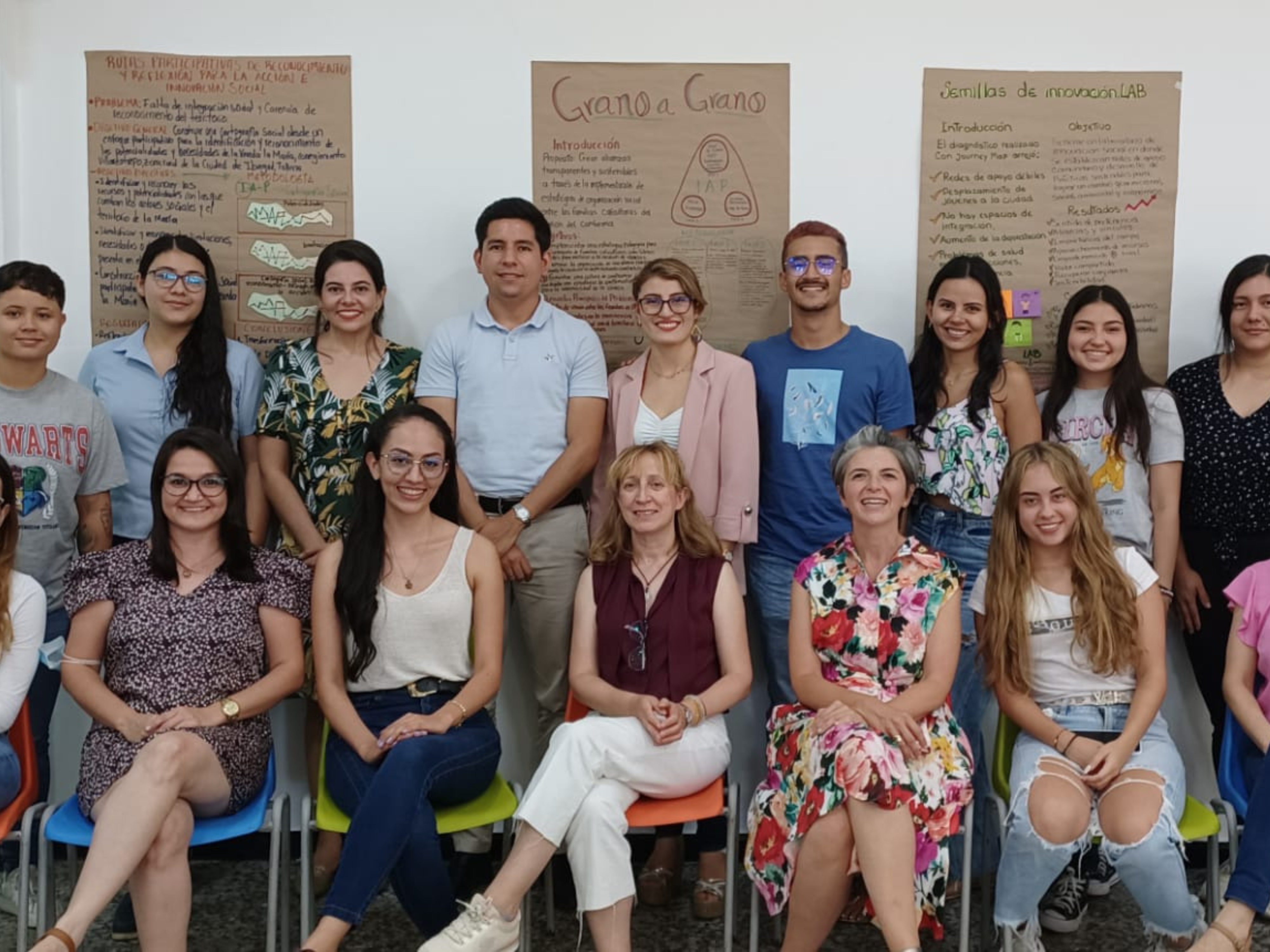
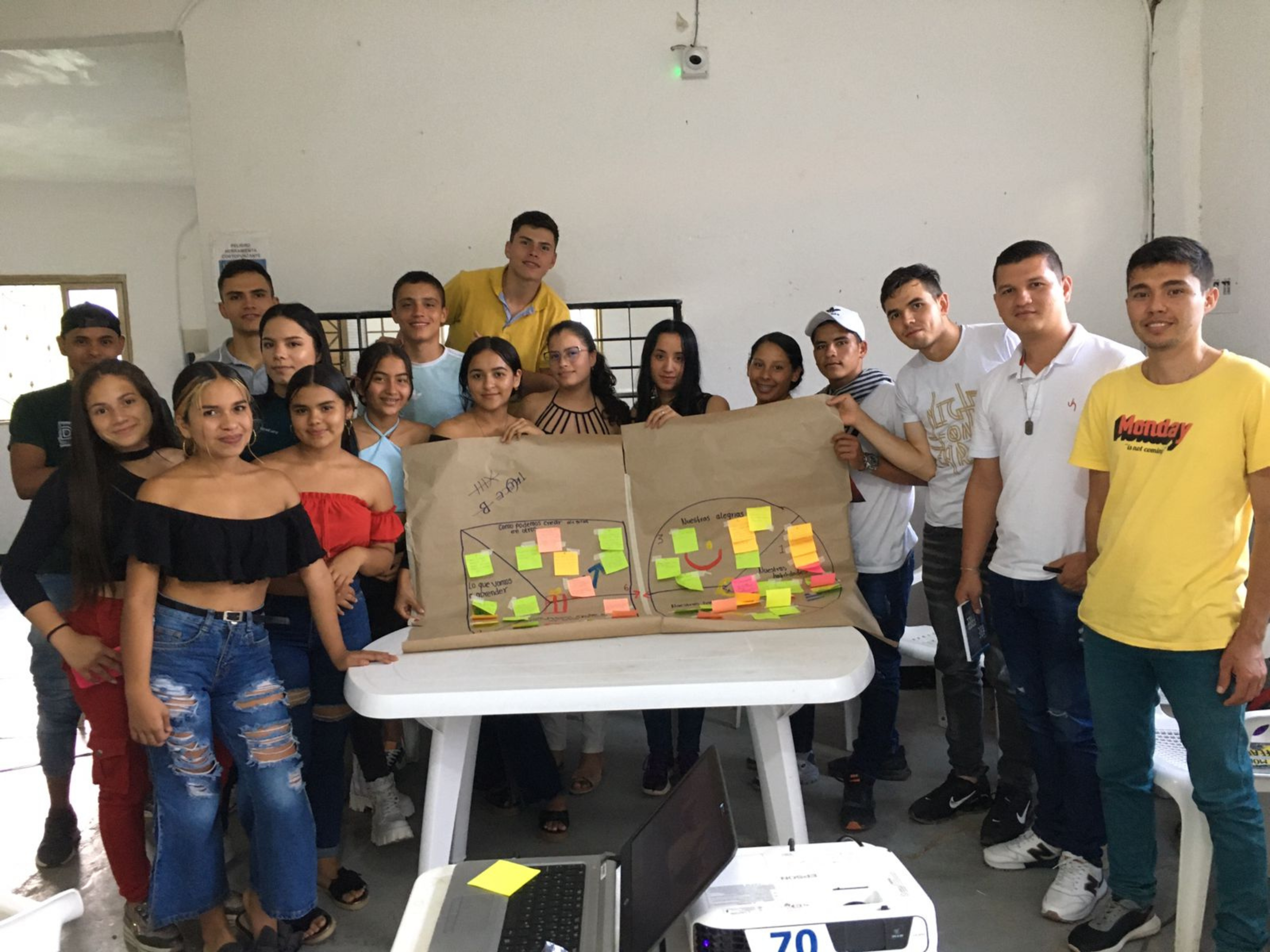
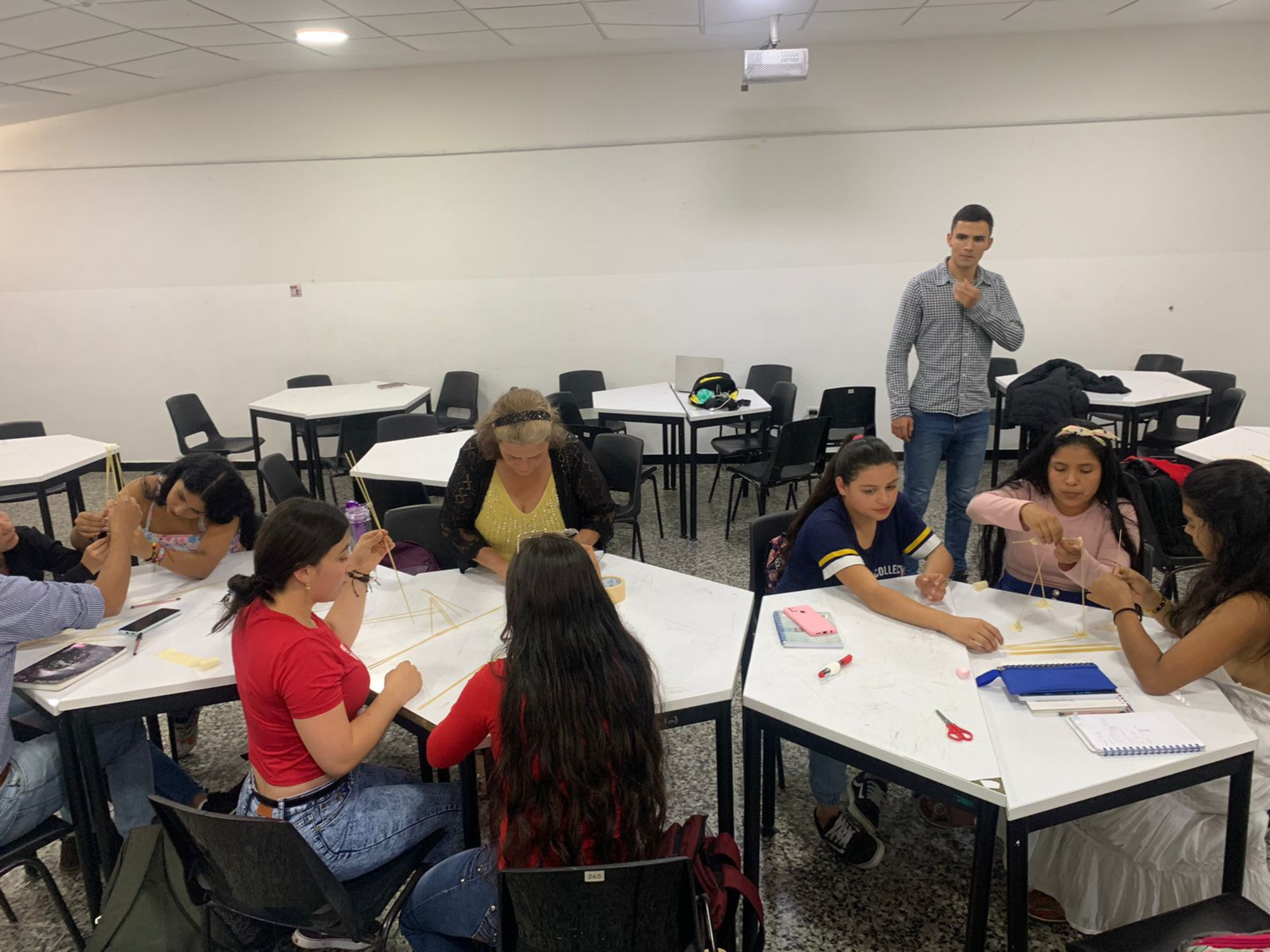
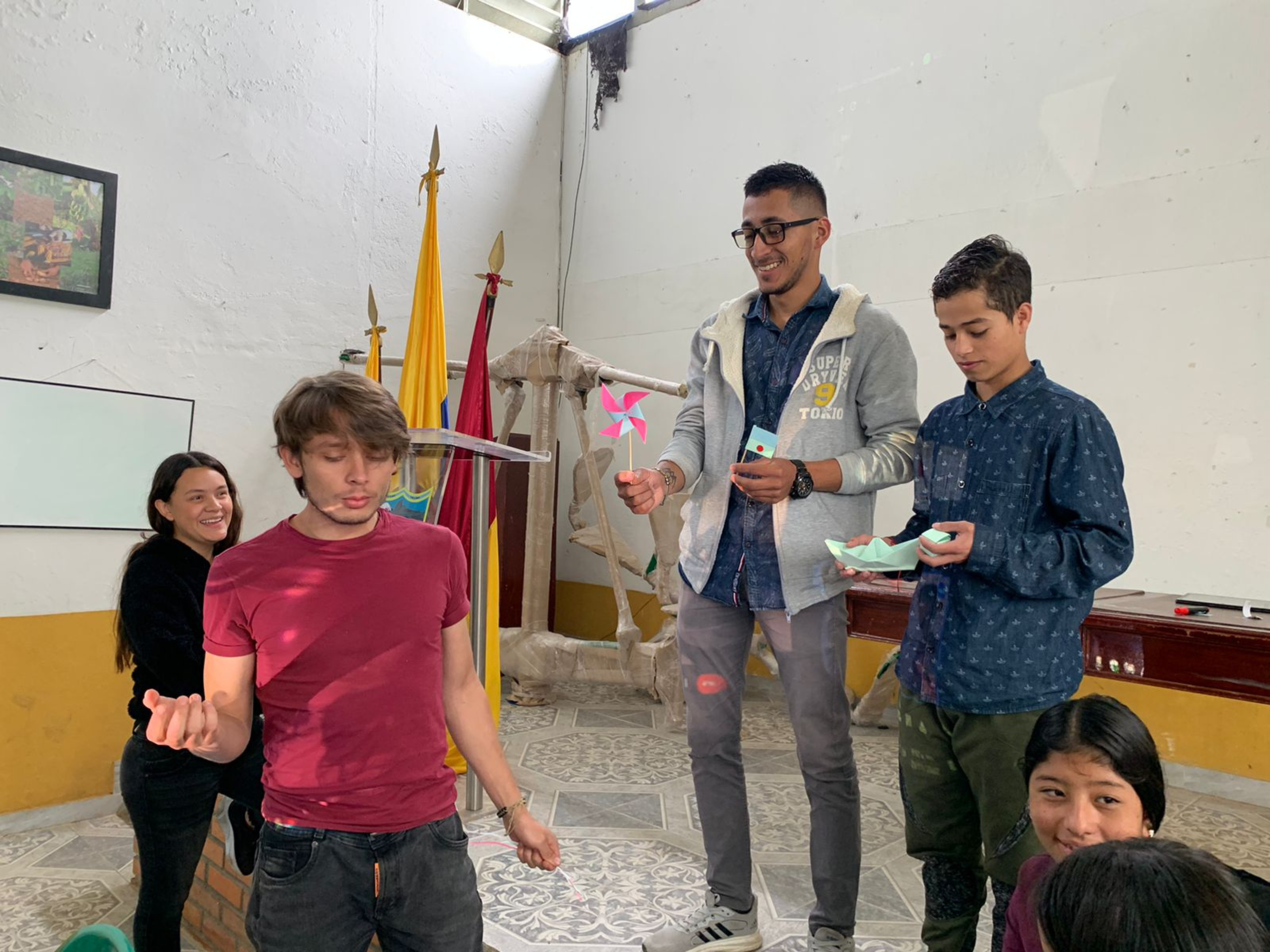
The objective of this project is to strengthen gender equity and creative and agency capacities through social innovation and entrepreneurship processes that promote the well-being and sustainable development of young people in rural areas of Tolima, Colombia. This proposal aims to promote and advise innovative youth entrepreneurship, based on the principles of sustainable development. A model of economy based on the common good and the development of cultures of sustainability underpinned by regional innovation systems linking University-Business-Territory will take precedence. This general objective has been broken down into the following specific objectives:
● To raise awareness of social entrepreneurship as an alternative for employment, autonomy and food security.
● To provide participants with tools and resources to stimulate social innovation.
● Apply creativity techniques to develop or focus the project idea.
● Empowering young people’s talents to strengthen the capacity for collective agency.
● Develop a prototype entrepreneurship project with the advice of the teachers.
● To carry out a Final Degree Project at the University of Zaragoza with the support of field staff.
● To develop competences to propose entrepreneurship that have an impact on social innovation. Numerous examples of good organisational practices have been proposed in the course. They have been presented in different formats: audiovisuals, reports, links, meetings with entrepreneurs of local initiatives.
● Enhance the capacity to design social enterprises through collective social innovation and participatory processes. As examples of assessment tools, a blog and virtual tutorials have been designed. In addition, in order to pass the course, the students had to design a poster in groups of 3 or 4 participants, reflecting the knowledge acquired in the course.
● To deepen their understanding of the Sustainable Development Goals, so that they become aware of them in their entrepreneurial proposals and take a pro-active role in adopting measures that contribute to making them a reality. This backbone has been addressed in each of the sessions of the course and in the two stages. It is considered an essential element of entrepreneurship proposals.
● Working in an international environment and promoting cultural exchange. The training proposal has combined teaching staff from Colombia and Spain. The fact that the teaching staff is international was highly appreciated by the students.
Women's entrepreneurship and leadership for peace project in Soacha and Bogota (Colombia)
This project has benefited a group of women from low Sisbén levels, who are in the segments of poverty and extreme poverty located in the city of Soacha and in marginalised neighbourhoods of Bogotá, in sectors affected by the Colombian conflict.
Through their own ventures, they have been able to provide women with tools that enable them to recognise their own power to overcome the social, economic and business barriers that they may encounter in their personal and, above all, professional future.
The selection of participants has taken into account diversity in order to include indigenous people, Afro-descendants, victims of the conflict, ex-combatants and mothers who are heads of household.
Additionally, the contents of the training process have been oriented towards the generation of commercial and entrepreneurial services and products as a result of the process, based on concrete, practical and relevant tools to be implemented by the women of the beneficiary population. In this way, conditions have been generated that have strengthened the capacities of women in Soacha so that they can assume transformational leadership, improve their ability to conceive and consolidate entrepreneurial projects, and increase their knowledge in areas such as leadership, administration, marketing, quality, accounting and associativity, among others.
The work in the field, thanks to the participation of the partners and the interaction between the entrepreneurial leaders, has facilitated conditions for learning skills and capacities that will significantly benefit women who want to undertake or have undertaken, in the production of goods and services from the design of business models, marketing and relationship strategies, implementation of production structures, and support to increase the chances of success and viability of the projects and models developed.
INTER-UNIVERSITY COOPERATION
Collaboration with universities in the country allows us to promote the internationalisation of our students while they participate and collaborate in social immersion programmes:
– With the University of Ibagué, our students have participated in its social immersion programme “Peace and Region” linked to projects that address regional issues in the municipalities of Tolima.
• With UNIMINUTO University, 4 students will be sent in the summer of 2024 for the first time to participate in the social immersion programme “With feet on the ground”, with the aim of getting involved in sustainable development projects during the summer.
• With the Social Innovation Science Park of the University UNIMINUTO and the University of Ibagué was held the Co-Laboratories for Youth Innovation and Entrepreneurship for Sustainable Development projectA strategy to strengthen gender equity and the creativity and agency capacities of young coffee growers in the department of Tolima (Colombia), financed in the call for grants for development cooperation projects and initiatives in the university field of the University of Zaragoza 2022.
CO-FINANCING BODIES
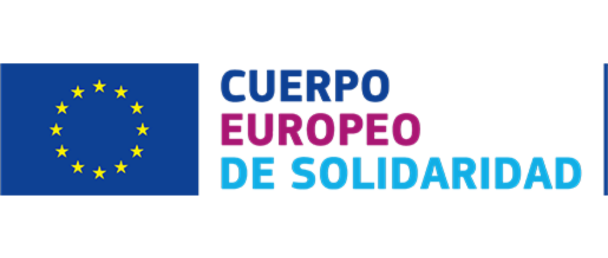
European Solidarity Corps
In 2023, Campus Iberus obtained the European Solidarity Corps Quality Seal for Solidarity Activities. This seal reflects the commitment to excellence in the development and execution of volunteer and cooperation projects.
